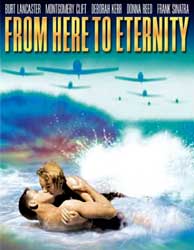3:33:33 PM
Romantic Interaction, continued...
The Rhyme of Time
From American Dante Bibliography for 1983:
Freccero, John. "Paradiso X: The Dance of the Stars" (1968). Reprinted in Dante in America ... (q.v.), pp. 345-371. [1983]
Freccero, John. "The Significance of terza rima." In Dante, Petrarch, Boccaccio: Studies in the Italian Trecento ... (q.v.), pp. 3-17. [1983]
Interprets the meaning of terza rima in terms of a temporal pattern of past, present, and future, with which the formal structure and the thematics of the whole poem coordinate homologically: "both the verse pattern and the theme proceed by a forward motion which is at the same time recapitulary." Following the same pattern in the three conceptual orders of the formal, thematical, and logical, the autobiographical narrative too is seen "as forward motion that moves towards its own beginning, or as a form of advance and recovery, leading toward a final recapitulation." And the same pattern is found especially to obtain theologically and biblically (i.e., historically). By way of recapitulation, the author concludes with a passage from Augustine's Confessions on the nature of time, which "conforms exactly to the movement of terza rima." Comes with six diagrams illustrating the various patterns elaborated in the text. |
From Rachel Jacoff's review of Pinsky's translation of Dante's Inferno:
"John Freccero's Introduction to the translation distills a compelling reading of the Inferno into a few powerful and immediately intelligible pages that make it clear why Freccero is not only a great Dante scholar, but a legendary teacher of the poem as well."
From The Undivine Comedy, Ch. 2, by Teodolinda Barolini (Princeton University Press, 1992):
"... we exist in time which, according to Aristotle, "is a kind of middle-point, uniting in itself both a beginning and an end, a beginning of future time and an end of past time."* It is further to say that we exist in history, a middleness that, according to Kermode, men try to mitigate by making "fictive concords with origins and ends, such as give meaning to lives and to poems." Time and history are the media Dante invokes to begin a text whose narrative journey will strive to imitate-- not escape-- the journey it undertakes to represent, "il cammin di nostra vita."
* Aristotle is actually referring to the moment, which he considers indistinguishable from time: "Now since time cannot exist and is unthinkable apart from the moment, and the moment is a kind of middle-point, uniting as it does in itself both a beginning and an end, a beginning of future time and an end of past time, it follows that there must always be time: for the extremity of the last period of time that we take must be found in some moment, since time contains no point of contact for us except in the moment. Therefore, since the moment is both a beginning and an end there must always be time on both sides of it" (Physics 8.1.251b18-26; in the translation of R. P. Hardie and R. K. Gaye, in The Basic Works of Aristotle, ed. Richard McKeon [New York: Random House, 1941]). |
From Four Quartets:
And the pool was filled with water out of sunlight,
And the lotos rose, quietly, quietly,
The surface glittered out of heart of light,
And they were behind us, reflected in the pool.
Then a cloud passed, and the pool was empty.
Go, said the bird, for the leaves were full of children,
Hidden excitedly, containing laughter.
Go, go, go, said the bird: human kind
Cannot bear very much reality.
Time past and time future
What might have been and what has been
Point to one end, which is always present.












Recent Comments